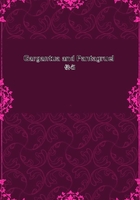
第28章
Of that which is signified by the colours white and blue.
The white therefore signifieth joy, solace, and gladness, and that not at random, but upon just and very good grounds: which you may perceive to be true, if laying aside all prejudicate affections, you will but give ear to what presently I shall expound unto you.
Aristotle saith that, supposing two things contrary in their kind, as good and evil, virtue and vice, heat and cold, white and black, pleasure and pain, joy and grief,--and so of others,--if you couple them in such manner that the contrary of one kind may agree in reason with the contrary of the other, it must follow by consequence that the other contrary must answer to the remanent opposite to that wherewith it is conferred. As, for example, virtue and vice are contrary in one kind, so are good and evil. If one of the contraries of the first kind be consonant to one of those of the second, as virtue and goodness, for it is clear that virtue is good, so shall the other two contraries, which are evil and vice, have the same connection, for vice is evil.
This logical rule being understood, take these two contraries, joy and sadness; then these other two, white and black, for they are physically contrary. If so be, then, that black do signify grief, by good reason then should white import joy. Nor is this signification instituted by human imposition, but by the universal consent of the world received, which philosophers call Jus Gentium, the Law of Nations, or an uncontrollable right of force in all countries whatsoever. For you know well enough that all people, and all languages and nations, except the ancient Syracusans and certain Argives, who had cross and thwarting souls, when they mean outwardly to give evidence of their sorrow, go in black; and all mourning is done with black. Which general consent is not without some argument and reason in nature, the which every man may by himself very suddenly comprehend, without the instruction of any--and this we call the law of nature. By virtue of the same natural instinct we know that by white all the world hath understood joy, gladness, mirth, pleasure, and delight. In former times the Thracians and Cretans did mark their good, propitious, and fortunate days with white stones, and their sad, dismal, and unfortunate ones with black. Is not the night mournful, sad, and melancholic? It is black and dark by the privation of light. Doth not the light comfort all the world? And it is more white than anything else. Which to prove, Icould direct you to the book of Laurentius Valla against Bartolus; but an evangelical testimony I hope will content you. Matth. 17 it is said that, at the transfiguration of our Lord, Vestimenta ejus facta sunt alba sicut lux, his apparel was made white like the light. By which lightsome whiteness he gave his three apostles to understand the idea and figure of the eternal joys; for by the light are all men comforted, according to the word of the old woman, who, although she had never a tooth in her head, was wont to say, Bona lux. And Tobit, chap.5, after he had lost his sight, when Raphael saluted him, answered, What joy can I have, that do not see the light of Heaven? In that colour did the angels testify the joy of the whole world at the resurrection of our Saviour, John 20, and at his ascension, Acts 1. With the like colour of vesture did St. John the Evangelist, Apoc. 4.7, see the faithful clothed in the heavenly and blessed Jerusalem.